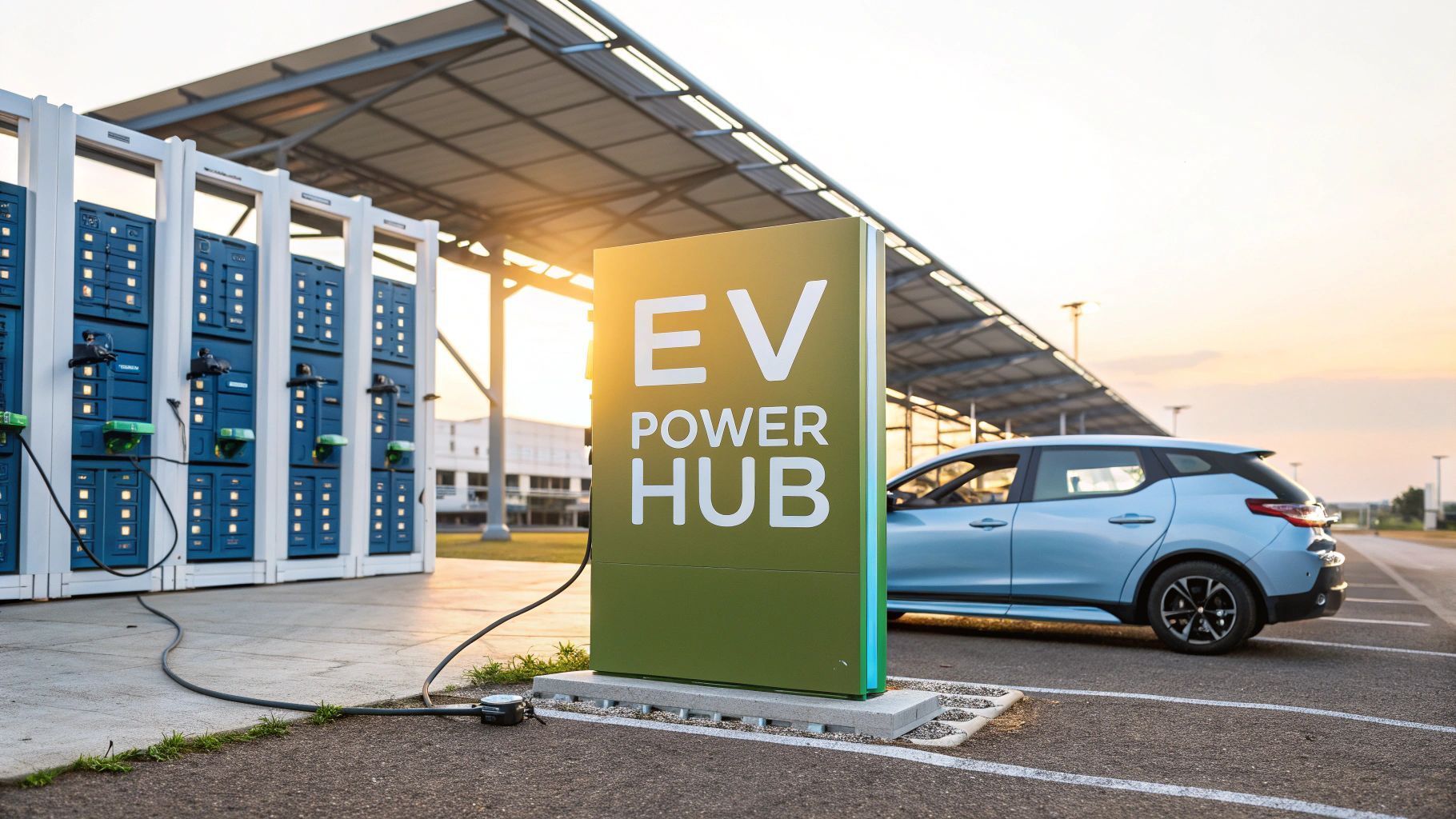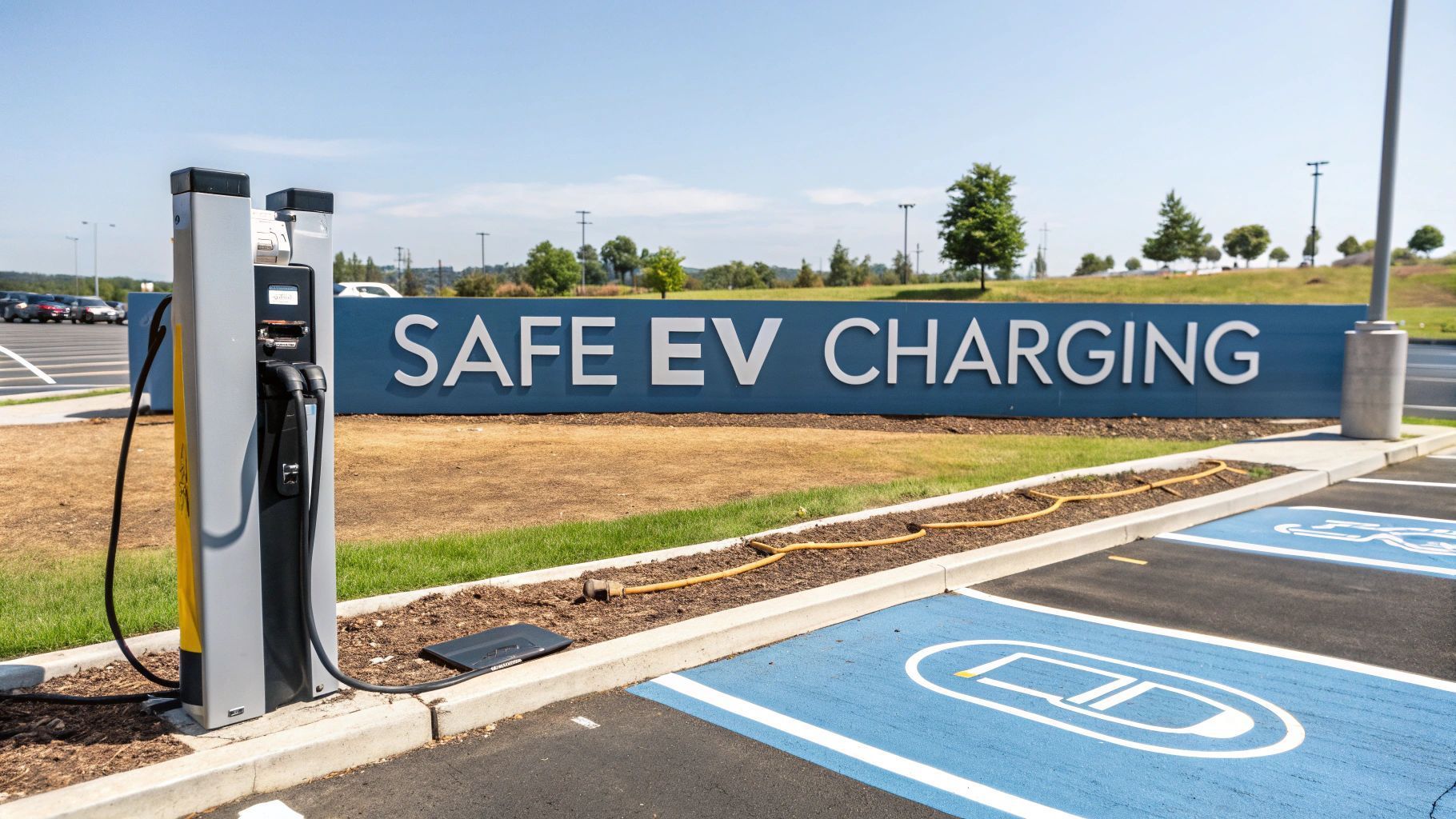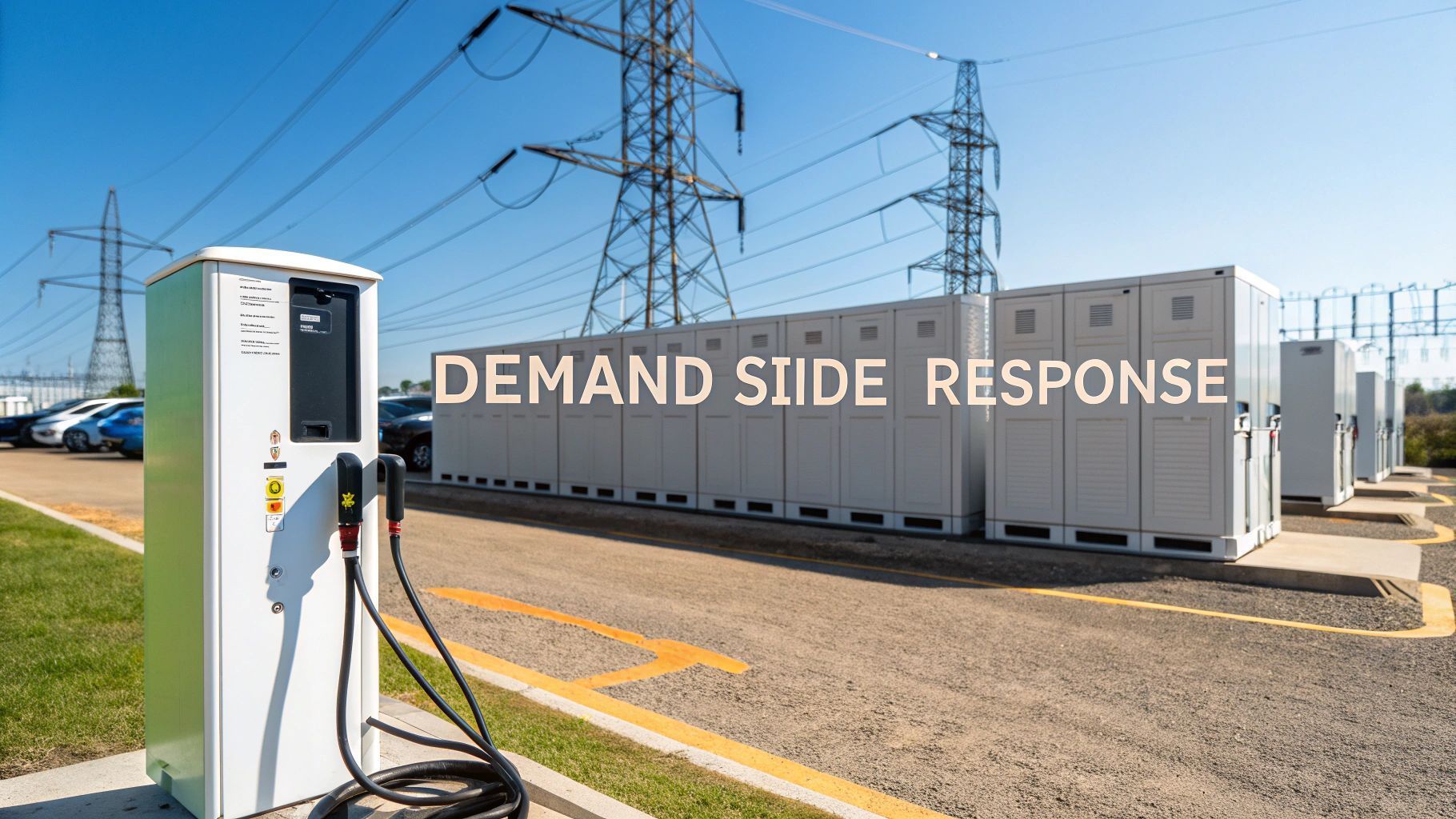How Our Battery Storage Systems Are Powering the UK’s EV Revolution
ZPN Energy is delivering scalable, resilient solutions to support the transition to electric vehicles across the country
The UK’s electric vehicle revolution is well underway. With petrol and diesel vehicles set to be phased out, the demand for dependable and accessible EV charging infrastructure has never been greater. While charging points often take the spotlight, it is battery storage systems working behind the scenes that are quietly powering the shift. At ZPN Energy, our battery storage systems are playing a key role in enabling this transformation.
Battery storage is the backbone of a reliable EV ecosystem. As more drivers switch to electric, the strain on the grid increases. Without a smart way to store and redistribute energy, charging networks risk becoming slow unreliable or even unavailable during peak times. ZPN’s battery storage systems solve this challenge by capturing excess energy when demand is low and releasing it when needed most. This ensures consistent charging performance without overloading the grid.
Our storage technology is designed to adapt. From high traffic motorway charging hubs to city centre locations with limited space, ZPN offers scalable modular systems that can be deployed in a variety of settings. This flexibility means our solutions can grow with local demand instead of requiring costly infrastructure overhauls. It also allows councils and private operators to future proof their EV charging investments.
One of the major advantages of our battery systems is their ability to integrate with renewable energy sources. As solar and wind generation become more common in the UK energy mix, the need for intelligent storage grows. Our systems allow for clean energy to be stored and delivered directly to vehicles, supporting a truly sustainable approach to transport. In doing so, ZPN not only supports the EV revolution but also strengthens the UK's journey to net zero.
The technology within our systems is engineered for precision and resilience. Our energy management software monitors and optimises performance in real time, ensuring maximum efficiency and reliability. This reduces waste and prolongs the life of the storage unit, delivering better value for operators and users alike.
Another key feature is rapid deployment. We understand that the EV market is evolving fast. That is why our battery storage units are built to be installed quickly with minimal disruption. Whether you are a local authority rolling out public chargers or a business upgrading your fleet facilities, ZPN can get you up and running without delays.
Our battery storage solutions also support mobile and off-grid EV charging. For events, emergency response or rural areas with limited infrastructure, ZPN delivers portable power where it is needed. This capability helps remove charging blackspots and ensures that no location is left behind in the transition to electric mobility.
As the EV revolution continues, infrastructure will make or break its success. ZPN Energy’s battery storage systems provide the stability, speed and intelligence required to support this shift. We are not just building storage. We are building the energy systems that will power the future of transport across the UK.








